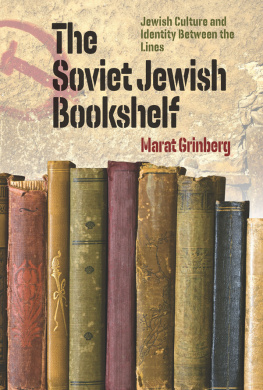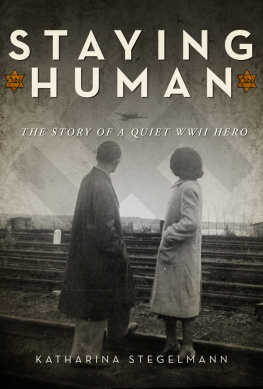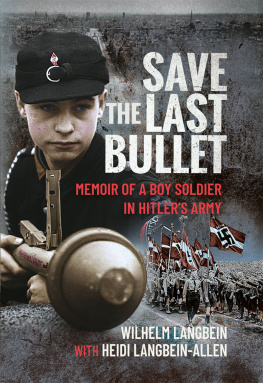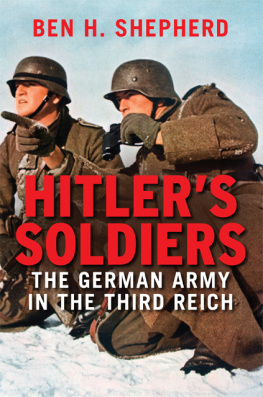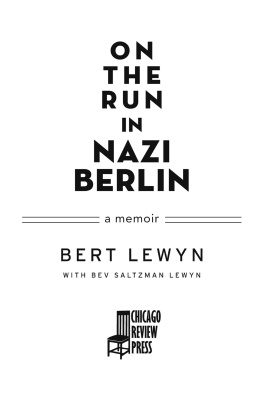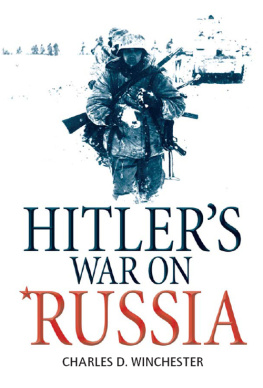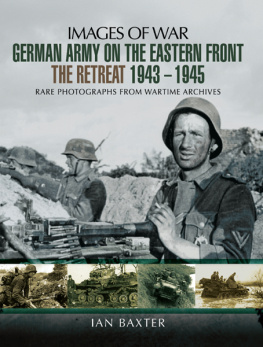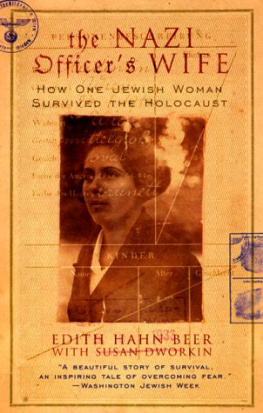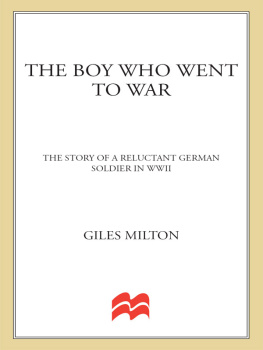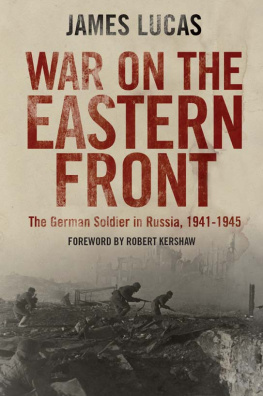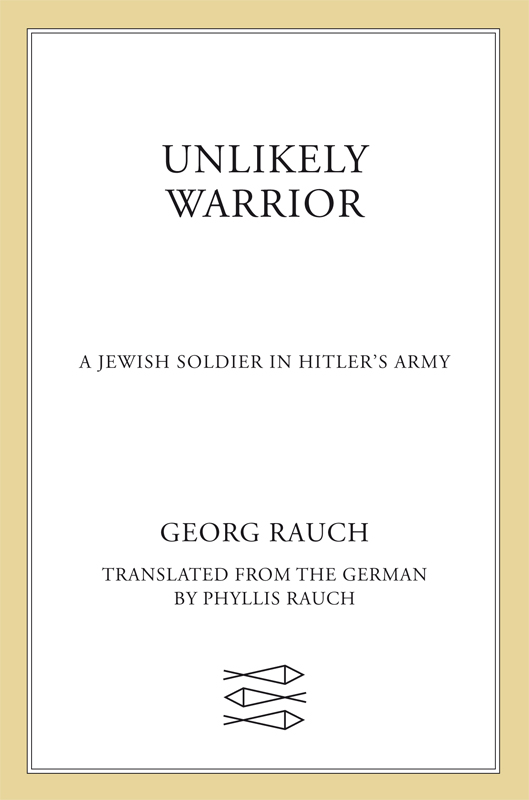Contents
Guide
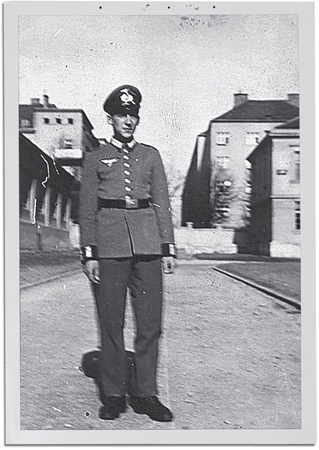
In my dress uniform in Vienna before departing for Russia.

The author and publisher have provided this e-book to you for your personal use only. You may not make this e-book publicly available in any way. Copyright infringement is against the law. If you believe the copy of this e-book you are reading infringes on the authors copyright, please notify the publisher at: us.macmillanusa.com/piracy.
To Phyllis
For steering me away from mediocrity
and sharing forty years of dreams
CONTENTS
All drawings by the author are from his wartime letters, unless otherwise noted.
In 1984, exactly forty years after my husbands Russian experience, he began writing this memoir. A chance event led to Georgs opening the letters that he had written to his mother all those years before. Soon thereafter, Georg left his art studio (a rare event) and began to write. He wrote seven days a week, by hand on yellow legal pads, and read each days pages to me as we sat on the terrace of our home in Mexico, overlooking Lake Chapala, every afternoon. The next day I translated them into English.
Georg was a total extrovert who loved to laugh and joke. He was a tireless raconteur and easily the center of attention at most social gatherings. Some of his war experiences also figured in his dinner party stories. I had heard the tale related in the early chapter The Hardest Thing a number of times before. But the afternoon he read this part of the book aloud to me on the terrace, he began to sob. It may have been the only time I ever saw him cry.
Obviously, the ten years he spent after the war creating expressionist paintings featuring sad men, clowns, and harlequins had not quite achieved the cathartic results he had believed. There were still memories as well as feelings of grief, shame, guilt, and despair to be confronted and dealt withthis time not on a canvas, but in words. Only in retrospect do I understand that Georgs intense days of writing were not just another example of his disciplined nature. He had to get it out. And he had to get it over with.
Had I understood this more fully, I might not have chafed so much under his constant demands to see the English translation. Although I am fluent in German, I purchased two fat German dictionaries in order to deal with a completely new vocabulary, words about battles and weapons, uniforms and ranks. It was slogging, intense work, and sometimes we quarreled when he told me I wasnt translating fast enough. Now, more than thirty years later, I understand much better what was fueling his demands.
Georg sometimes gave an additional explanation for why he wrote the book. Many of his art collectors were Jewish. When we met these people, conversations often led to Georgs history. He sensed that some people were perplexed, or worse, when they heard that he had been in Hitlers army. He said he hoped by writing the book, he could set the record straight. Georg identified as Jewish. He knew and often quoted the fact that Jews adhere to the maternal linewhich in his case was unbroken. His family members were treated as second-class citizens, and it was only the fact of his Aryan fathers prior war service that kept him and his mother out of the camps.
The book in manuscript form was passed on to scores of friends and visitors to our B&B in Mexico. Many told us that Georgs story needed telling more widely. We finally agreed, and in July of 2006, twenty-two years after he wrote the manuscript, we self-published a first edition of it ourselves. Georg lived another four months, until November.
Seven years later, on the exact date of his passing, I was lighting the candles on my Mexican Day of the Dead altar, when the phone rang. It was my amazing, indefatigable literary agent, Emmanuelle Morgen. I heard her voice for the first time as she said, I have some news for you. I replied, It has to be good. Thus I learned that thanks to Emmanuelle, my thirty-year dream had come true. Our book was on its way to the world and the readership it deserved. My affection for my editor, Wesley Adams, began with his wholehearted (and continuing) enthusiasm for Georgs book. I have come to appreciate his perfectionism, but also his willingness to compromise. He is a true gentleman, but best of all, he makes me smile. Could an author be any luckier?
Georg Rauch believed that as long as you could laugh at something, its power to harm you was reduced. In his letters home from Russia, he often tried to find the funny side of things in what were, in reality, very unfunny situations. He takes the same approach in these pages, and the result is a unique tale of one clever, multitalented nineteen-year-old who rose above his situations, put his many wits to use, and survived to tell it all.
Phyllis Rauch
June 22, 1941 | Germans launch three-pronged attack on Russia; more than 3 million soldiers and 3,300 tanks cross Russian border; Luftwaffe (German air force) destroys more than 2,000 Russian air force planes. |
June 1941 | Germans take Minsk and Smolensk (on direct route to Moscow). |
September 1941 | Kiev falls to the Germans; 650,000 Russian soldiers captured. |
NovemberDecember 1941 | Germans push toward Moscow, come to within 32 kilometers of city before being delayed by order from Hitler. |
January 1942 | Russians retake Kiev. |
May 1942 | 240,000 Russians captured at Kharkov, in the eastern Ukraine. |
August 1942February 1943 | Battle of Stalingrad; bloodiest battle in history, with more than 1.5 million casualties; tide turns in the war. |
July 1943 | Largest tank battle in history at Kursk, with about 2,700 German and 4,000 Russian tanks in action; Russians mount counteroffensive, driving German armies back toward their border. |
December 1943July 1944 | Battles for control of the Ukraine intensify. Georg Rauch arrives at front in battle near Znamenka, 240 kilometers southeast of Kiev, December 5. Eight-day battle at Marianovka, south of Kiev, starting December 15. Rout of Germans at Pervomaysk, on the river Bug, March 22. River Dniester crossing and return to front lines, followed by period of quiet, AprilJuly. |
JuneAugust 1944 | German Army Group Center and German Army Group South destroyed in the Ukraine. |
July 1944 | Siege on Leningrad lifted; German Army Group North cut off in Baltic. |
August 1944 | Romania defeated, becomes Russian ally. |
Georg Rauch receives Iron Cross following attack, mid-August. Georg Rauch captured following second Russian attack, August 23. |
May 7, 1945 | Germany surrenders. |
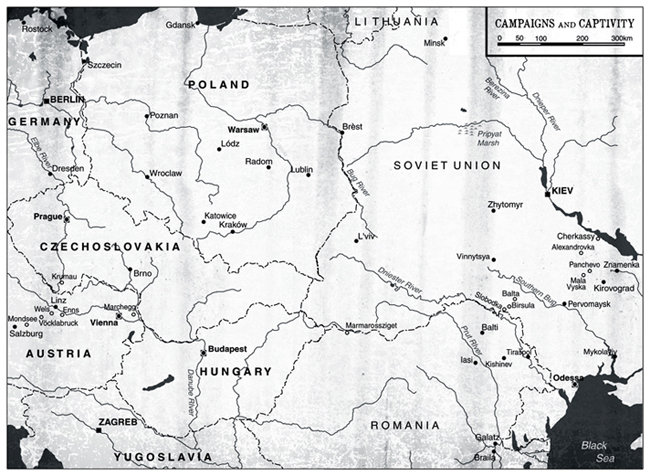
Our right hands stiffly raised, we repeated the words of the oath as they were pronounced: And I solemnly swear to defend Fhrer , Volk , and Vaterland


